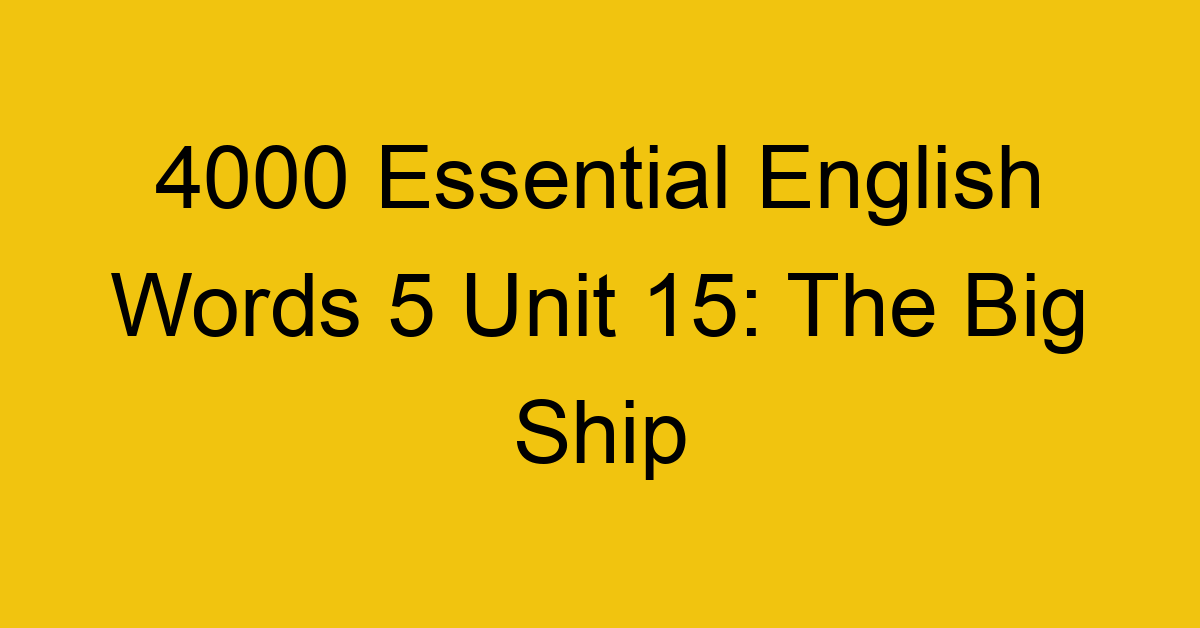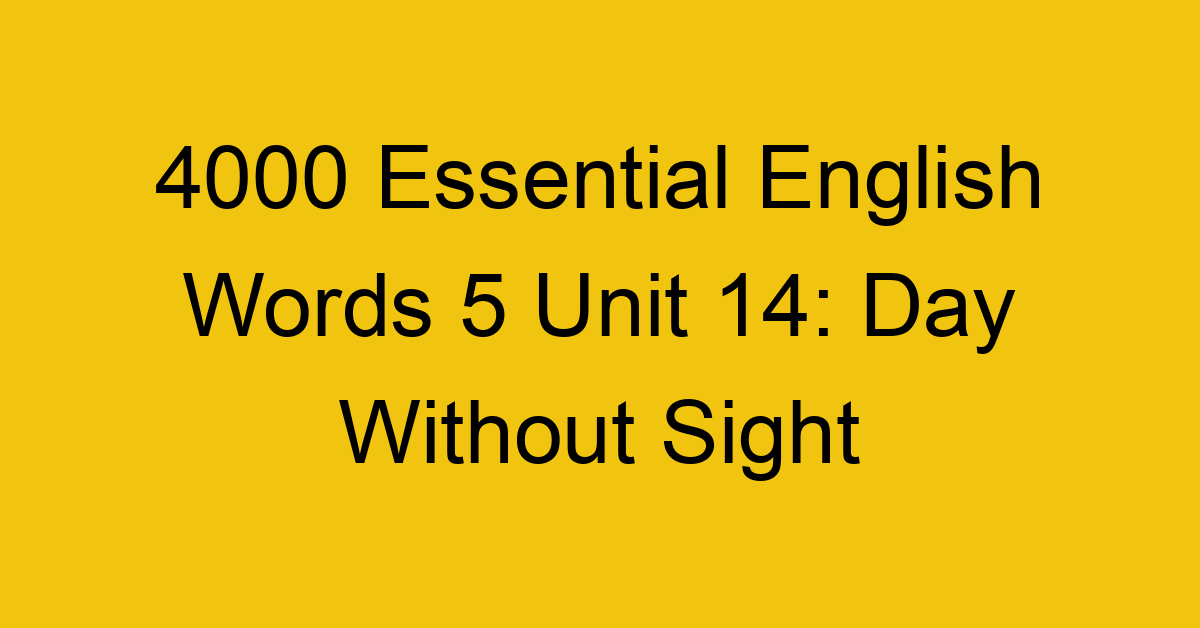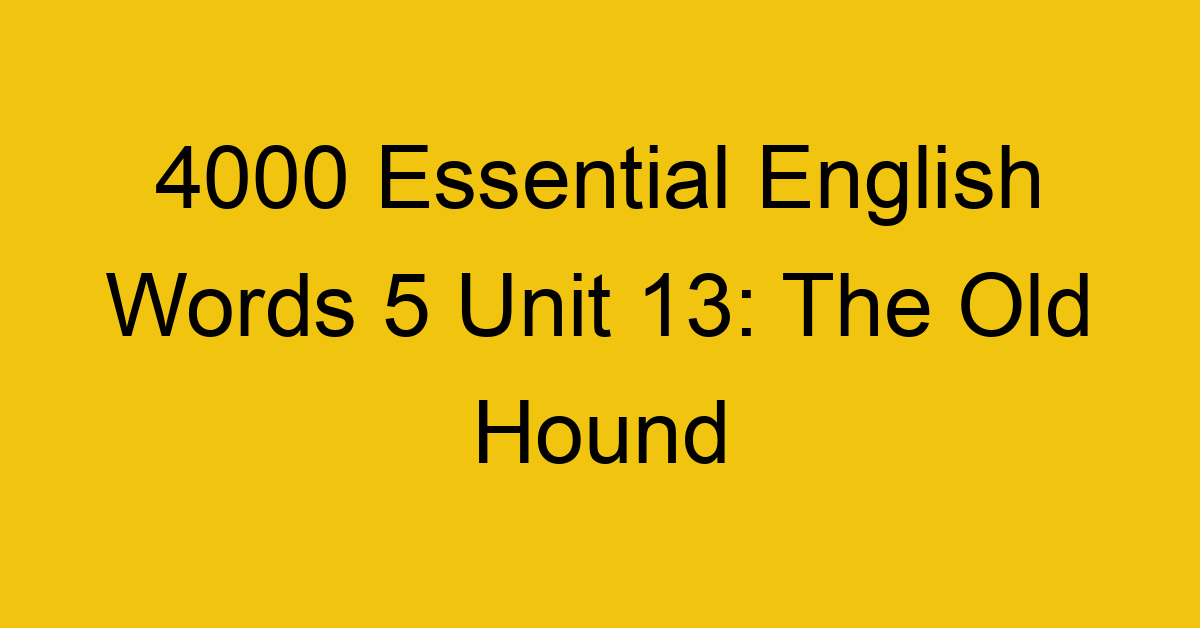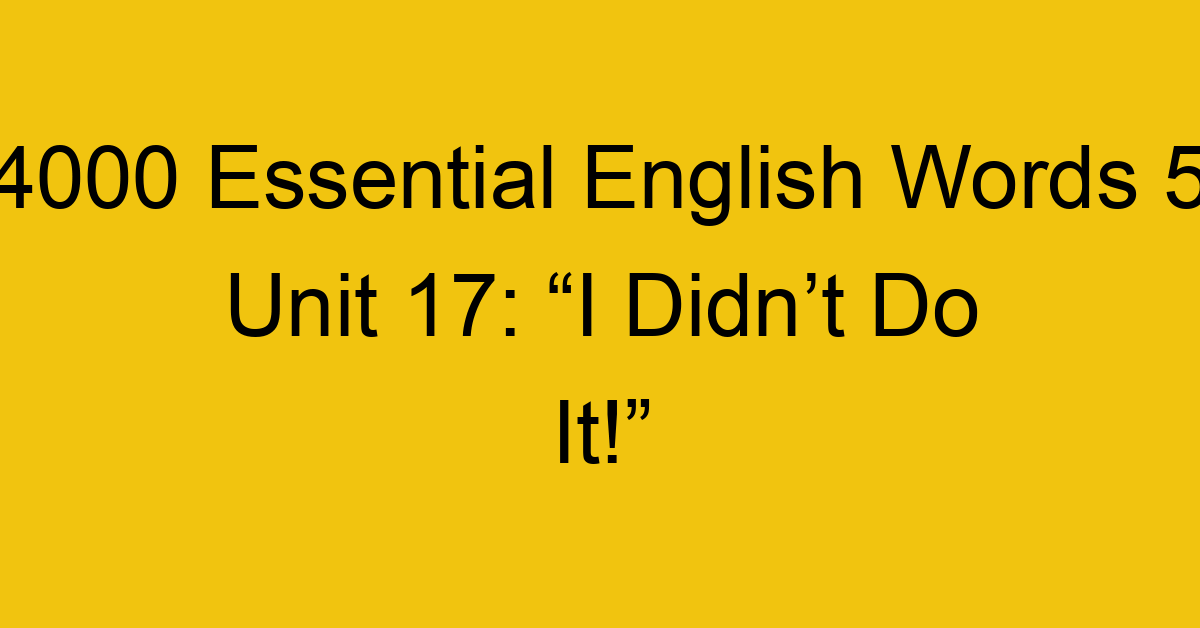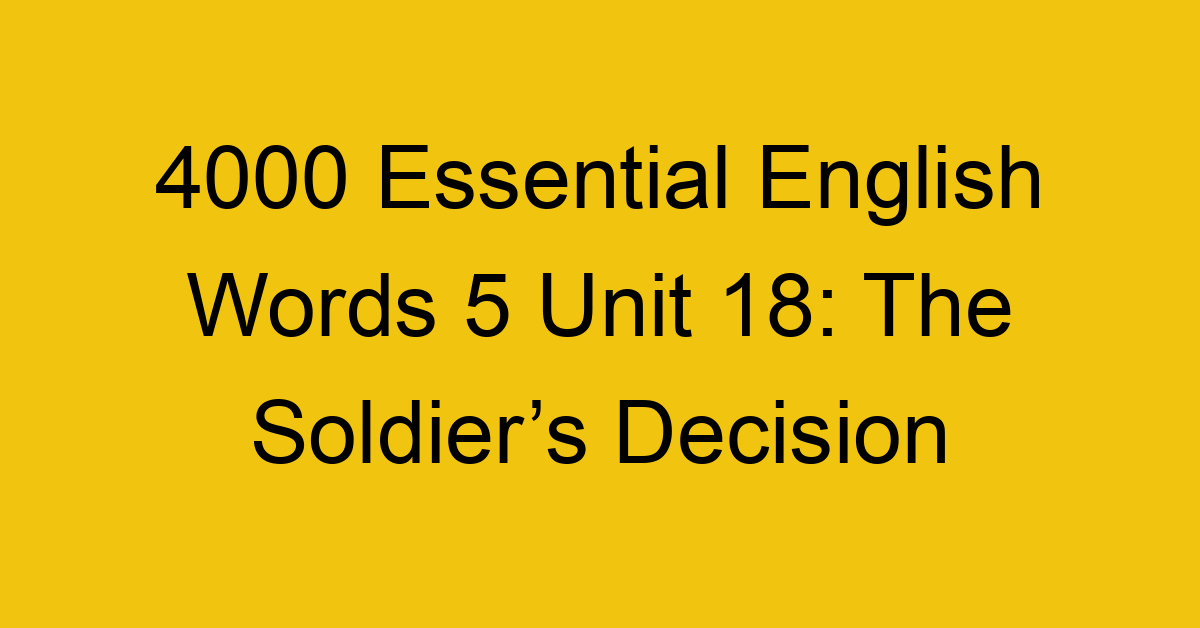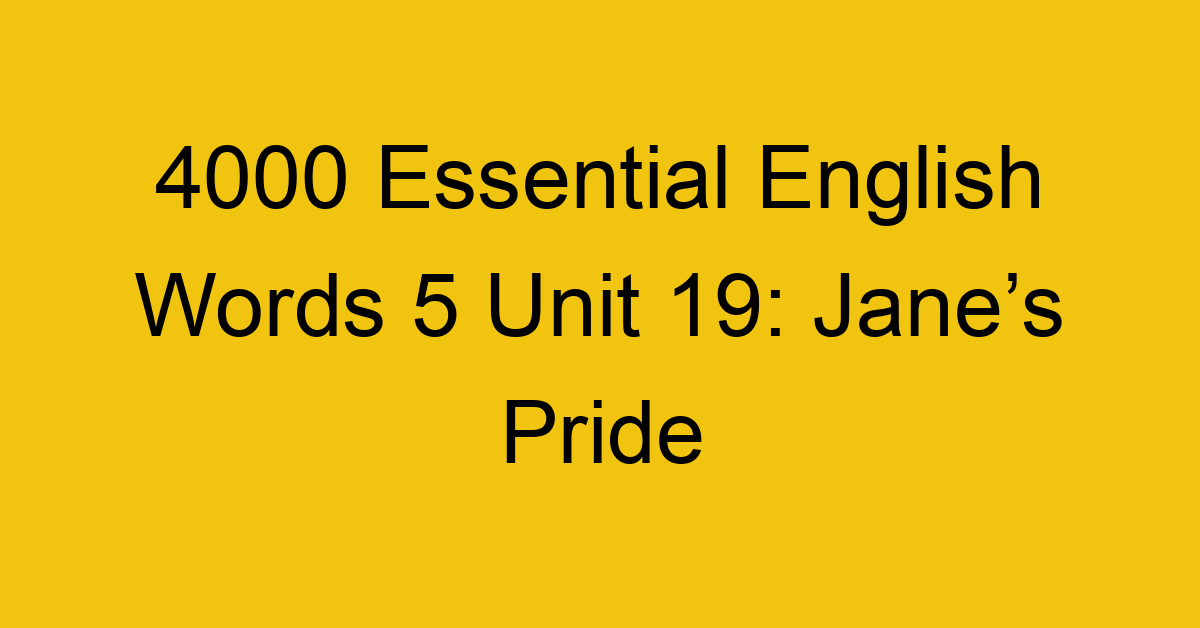4000 Essential English Words 5 Unit 16: The History of Parachutes
Word List
- addict [ˈædikt] n.
An addict is a person who cannot stop doing or having something.
→ She was a coffee addict. She had more than three cups each day.
- archeological [ˌɑːrkiəˈlɒdʒikəl] adj.
When something is archeological, it relates to archeology.
→ They found archeological evidence that proved an ancient species of man.
- archeology [ˌɑːrkiˈɒlədʒi] n.
Archeology is the study of ancient people through their artifacts.
→ He studied archeology to learn more about ancient Egyptian culture.
- brainstorm [ˈbreinstɔːrm] v.
To brainstorm is to have a lot of ideas about a certain topic.
→ The students met after school to brainstorm ideas for their assignment.
- budget [ˈbʌdʒit] n.
A budget is the amount of money available to spend on something.
→ His budget for food was very tight.
- chaotic [keiˈɒtik] adj.
When something is chaotic, it is crazy, confused, and hectic.
→ The first day of school can be chaotic for a new student.
- cite [sait] v.
To cite something is to mention it as an example or as proof of something.
→ She cited six reasons that the school needed to build new classrooms.
- correspond [ˌkɔ:rəsˈpɒnd] v.
To correspond is to match or to be similar to something.
→ The boy’s story didn’t correspond with his mother’s version.
- courtyard [ˈkɔːrtjɑːrd] n.
A courtyard is an outdoor area that is surrounded by the walls of a building.
→ During the summer, the courtyard is a nice place to have lunch.
- estate [isˈteit] n.
An estate is a large area of land owned by a family or organization.
→ He lived on his father’s estate in the country.
- fraud [frɔːd] n.
Fraud is the crime of gaining money by lying or by tricking people.
→ Experts say that credit card fraud increases around the holidays.
- hydrogen [ˈhaidrədʒən] n.
Hydrogen is a gas that has no taste, color, or smell.
→ Balloons filled with hydrogen can easily float away if you aren’t careful.
- integrity [inˈtegrəti] n.
Integrity is honesty and good morals.
→ The principal had a lot of integrity.
- knit [nit] v.
To knit is to make fabric by connecting strings together.
→ My grandmother knitted me a sweater.
- outlook [ˈautluk] n.
An outlook is a person’s opinion or way of thinking about something.
→ He changed his outlook about rats after he read a book about them.
- parachute [ˈpærəʃuːt] n.
A parachute is a device that helps people and things fall to the ground safely.
→ They used parachutes dropped from airplanes to send supplies to the civilians.
- prehistoric [ˈpriːhisˈtɔ:rik] adj.
When something is prehistoric, it is from a time when there was no written history.
→ The scientists found prehistoric pots used by the people in the area.
- proponent [prəˈpounənt] n.
A proponent is a person who supports an idea or a plan.
→ He was a proponent of using environmentally friendly products.
- refine [riˈfain] v.
To refine something is to make it better by making changes.
→ The principal refined his method of controlling students over the years.
- restrict [risˈtrikt] v.
To restrict is to limit something and prevent it from getting bigger.
→ The club restricted the amount of members.

